Nasopharyngeal Cancer Treatment in Israel
Nasopharyngeal Cancer Treatment
There are two methods of treating nasopharyngeal cancers: surgical intervention or cutting-edge radiation therapy. Decision regarding therapy will be made by your treating oncologist based on the results of the aforementioned investigations. Treatment will take place at Assuta Tel-Aviv.
Diagnosis
Nasopharyngeal cancer treatment is a complicated process, which takes a significant amount of time. The first stage, naturally, is extensive diagnostics, which will allow your treating specialists to select the most appropriate treatment for your case and determine the extent of the surgery required. Listed below are the diagnostic protocols for nasopharyngeal and oral cavity cancers.
Surgery
The price of surgery includes the following:
- Preoperative care: Routine preparation including an ECG, chest X-ray and an anesthesiologist consultation
- Operation and up to 7 days of hospitalization
- Disposable surgical materials
- Express biopsy and definitive histopathological study
A plastic otolaryngological surgeon will take part in the surgery. Please be advised that the recovery period following this type of operation is fairly long, so you will have to remain in Israel for up to 2 weeks following your discharge from the hospital.
** Radiation therapy is performed utilizing RapidArc. Treatment lasts for 7 weeks (33 sessions). Simulation, pre-treatment simulation and dynamic monitoring are included in the price.
Symptoms and Causes
Nasopharyngeal cancer is a relative rare type of malignancy, which is most prevalent among men between 50 and 60. It develops in the upper part of the throat. Risk factors include a family history, Epstein-Barr virus, as well as a diet rich in salt-cured meats/fish and smoking. The most common symptoms are nasal congestion (one-sided or bilateral), nasal bleeding, hearing loss, constant tinnitus, sudden appearance of strabismus and headaches. As the disease develops differently than other head and neck malignancies, nasopharyngeal cancer treatment is performed according to specialized protocols.
The main difficulty in diagnosing and treating nasopharyngeal cancer is related to the composition of the nasopharynx, which contains several different types of cells. Because of this, several types of carcinomas can develop in the area, and the appropriate treatment will depend on the exact type of malignancy.
The three most common types are:
- Keratinizing squamous cell carcinoma
- Non-keratinizing nasopharyngeal carcinoma (differentiated and undifferentiated)
- Basaloid carcinoma
Oral Cavity Cancer Diagnosis
- Extensive blood workup (including tumour markers)
- Whole body PET CT scan to rule out mets
- Head MRI
- Biopsy revision (please bring the slides/blocks from your previous biopsy with you when you come to Israel!)
- Gastroscopy with a new biopsy
- Oncologist consultation
- Otolaryngological surgeon consultation
The aforementioned investigations take 5 business days to complete. The work up takes place at Assuta Hospital in Tel Aviv. If a new biopsy is needed, the results of the expedited histopathological study will be available within 5-6 business days.

